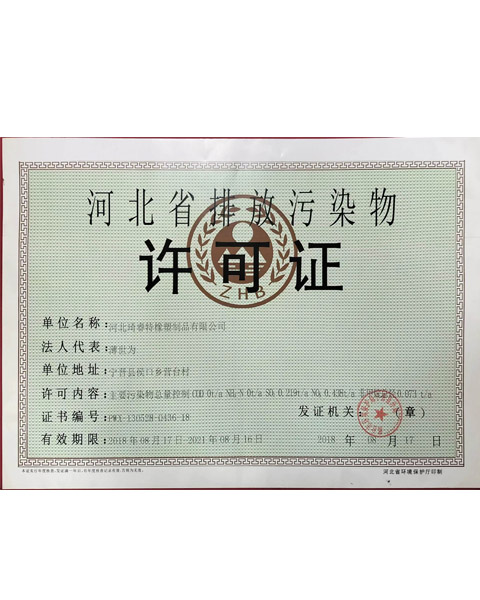Bespoke Air Conditioning Solutions Tailored to Your Unique Needs and Preferences
Custom Air Conditioning Lines A Path to Optimal Comfort and Efficiency
In today’s rapidly changing climate, air conditioning has become a cornerstone of comfort in both residential and commercial spaces. However, the performance and efficiency of these systems are heavily reliant on the quality and design of their components, particularly the air conditioning lines. Custom air conditioning lines are a vital aspect of any HVAC system, offering tailored solutions to meet specific needs and maximize efficiency.
Understanding Air Conditioning Lines
Air conditioning lines, primarily composed of a suction line and a liquid line, are crucial for the refrigerant’s flow between the indoor and outdoor units of an air conditioning system. The suction line carries low-pressure refrigerant gas back to the compressor, while the liquid line transports high-pressure refrigerant to the evaporator coil. Proper installation and sizing of these lines can significantly impact the efficiency of the HVAC system.
The Importance of Customization
Customization of air conditioning lines ensures that the connections between the various components of the system are optimized for efficiency. Standard sizes and configurations may not suit every system, particularly in complex installations or unique space constraints. Custom air conditioning lines can accommodate specific layouts, ensuring that refrigerant flows smoothly and effectively throughout the system.
One significant advantage of custom air conditioning lines is the ability to minimize pressure drops in the system. When air conditioning lines are poorly designed or improperly sized, it can lead to a decrease in efficiency, increased energy consumption, and even premature system failure. With custom lines, technicians can ensure optimal diameters and lengths, reducing the risk of pressure drops and enhancing overall performance.
Materials and Design Flexibility
Another benefit of custom air conditioning lines is the flexibility in materials. Standard lines are often made from rigid copper or aluminum, which can limit installation possibilities in intricate spaces. Custom solutions can utilize flexible materials or reinforced options that can be bent and shaped to fit unique installation environments. This flexibility is particularly beneficial in retrofitting older buildings or when installing new systems in tight or awkward spaces.
custom air conditioning lines

In addition, custom air conditioning lines can be insulated to reduce energy loss, preventing condensation and improving efficiency
. With enhanced thermal protection, these lines can help maintain the system’s performance, ultimately leading to lower energy bills and prolonged equipment lifespan.Ensuring Quality and Compliance
When opting for custom air conditioning lines, ensuring quality is paramount. Not all manufacturers adhere to the same standards, which can lead to significant variations in performance and longevity. It is crucial to partner with a reputable manufacturer who specializes in HVAC components to guarantee that the lines meet industry standards for safety and efficiency.
Moreover, custom air conditioning lines should comply with local codes and regulations. Many jurisdictions have specific requirements for HVAC installations, and using custom solutions can assist in adhering to these guidelines. This attention to detail not only enhances safety but also streamlines the permitting process, making project approvals more efficient.
The Professional Installation Process
While the benefits of custom air conditioning lines are clear, the installation process is equally important. Professional HVAC technicians have the training and expertise to ensure that custom lines are installed correctly. This involves careful planning, precise measurements, and a comprehensive understanding of the HVAC system as a whole.
During installation, technicians will evaluate the existing layout, assess flow rates, and consider potential future needs. By collaborating with engineers and designers, they can implement solutions that accommodate current demands while allowing for easy upgrades or modifications down the line.
Conclusion
In conclusion, custom air conditioning lines are an essential element of an efficient, high-performing HVAC system. Their ability to improve efficiency, accommodate unique space requirements, and adhere to safety standards makes them a worthwhile investment for both residential and commercial applications. By opting for tailored solutions and utilizing professional installation services, property owners can enjoy optimal comfort and reduced energy costs in a world where climate control is increasingly vital. Embracing customization in air conditioning lines ultimately sets the stage for a more efficient and sustainable future in indoor climate management.
-
Ultimate Spiral Protection for Hoses & CablesNewsJun.26,2025
-
The Ultimate Quick-Connect Solutions for Every NeedNewsJun.26,2025
-
SAE J1401 Brake Hose: Reliable Choice for Safe BrakingNewsJun.26,2025
-
Reliable J2064 A/C Hoses for Real-World Cooling NeedsNewsJun.26,2025
-
Heavy-Duty Sewer Jetting Hoses Built to LastNewsJun.26,2025
-
Fix Power Steering Tube Leaks Fast – Durable & Affordable SolutionNewsJun.26,2025

